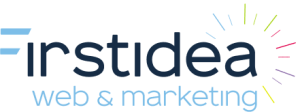There are over 3.5 billion users of social media or more than half of the world’s population. If you belong to that group, you are a member of this audience.
Social networks can limit your digital strategy even if they are free, accessible platforms with worldwide reach. For example, An organization’s ability to govern information, disseminate it in various ways or generate leads is limited if the business solely depends on Social networks.
An ideal place should be flexible and adaptable to your needs – we are referring to a website where you can distribute your goods or services, your freelance work, or share the information you have gained in your field.
Our discussion in this post will cover what a website is, the different types of websites, how you can manage a dynamic website, and why investing in a website is worthwhile.
Websites: Definitions in Simple
Without getting lost in technical jargon, the following comparison might help you understand the fundamental structure of the network of networks.
Let me explain using straightforward language:
Websites are collections of web pages stored somewhere in the internet cloud (Server). By using their favourite web browser, Internet users can access these pages on-demand for a variety of reasons – reading about companies or government bodies, listening to music, or looking at the view – you get the picture!
What is a Web page?
Page or webpage refers to a document that can be viewed in a browser, commonly written in HTML. Web pages can contain text, graphics, and hyperlinks to other pages on the internet. URL addresses are entered into a browser’s address bar to access web pages.
Multiple web pages make up a website, like our Firstidea Web & Marketing Website. Pictures and videos are often used to illustrate essential topics on web pages, providing viewers with information. Viewers can also purchase products or services through a web page.
A search engine provides a link that leads you to a web page when you click on it. Millions of web pages are on the internet, and more are added daily.
What are the key requirements to have a website up and running?
If you are thinking about getting a website, you need to have three things. Without these components, a website cannot be conceived.
Web Hosting – Where files are stored
Online users must be able to access your website’s pages on-demand by pulling them down from a central location – it’s like renting a storage space in the cloud to store your files. A web hosting server is a machine that serves copies of your web pages to online users when they request them.
Making the right choice of your hosting provider is crucial – poorly managed, unsecure servers can negatively impact your website reputation and the credibility of your business.
Domain – Name of the website
Domain name is a memorable name for your website, such as www.yourwebsite.ie, which can be typed into a browser to access your website.
.ie domain extensions are preferred for website domains in Ireland – we can register your desired domain name as part of our 360 degree solution.
SSL Certificate – Keeping your website secure and encrypted
In order to keep user information safe and prevent hackers from gaining access to it, an SSL certificate is essential. An SSL certificate might be helpful if your company collects sensitive customer data or has an e-commerce website. Professional websites that handle sensitive data, such as financial records or medical records, should have an SSL certificate.
Just to recap – To run a successful website, you need a memorable domain name linked to your hosting account that stores all your web files and is secured by SSL technology.
Now let’s talk about types of websites – what are they?
At a very high level, there are two main types of websites 1) Static Websites 2) Dynamic Websites.
Once uploaded to hosting servers, the website owner cannot edit static websites. The website maintenance contract includes all updates / minor changes if the owner enrols within 30 days of the launch date. Change requests should be emailed to us, and the changes will be hardcoded accordingly. There are charges associated with this service.
Any website that can be modified or updated in real-time using a dedicated backend system falls under the Dynamic category. Dynamic websites include websites built using frameworks such as WordPress, Joomla, etc., blogs, and e-commerce.
It is more expensive to develop dynamic websites, but they offer much more functionality than static ones.
Business websites: why are they important?
Having a website has the advantage of being accessible to anyone, anywhere, at any time. Customers can access the website 24/7, 365 days a year, from the comfort of their homes. It is important to remember that customers can access your website even during non-business hours and get the information they need, which is one of the key elements of the importance of a website.







